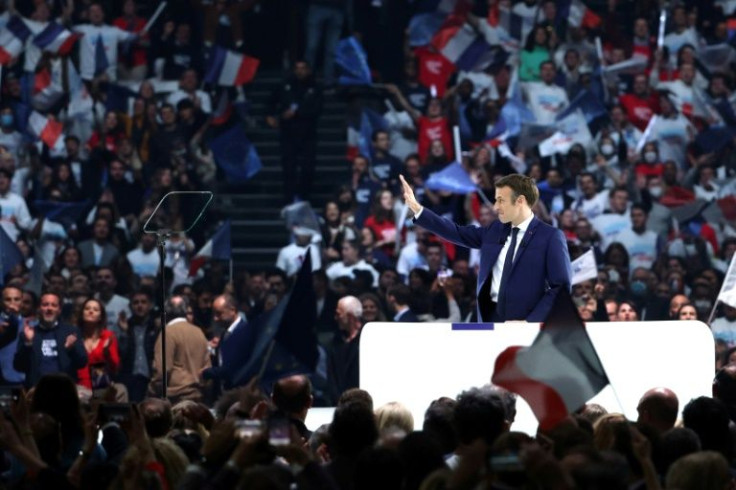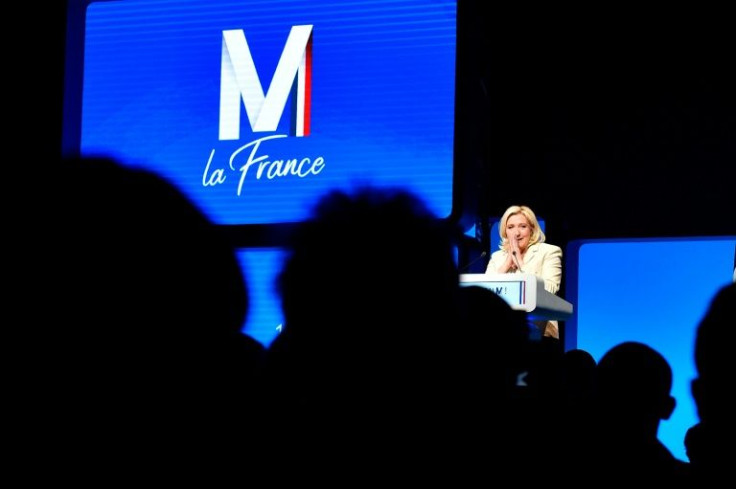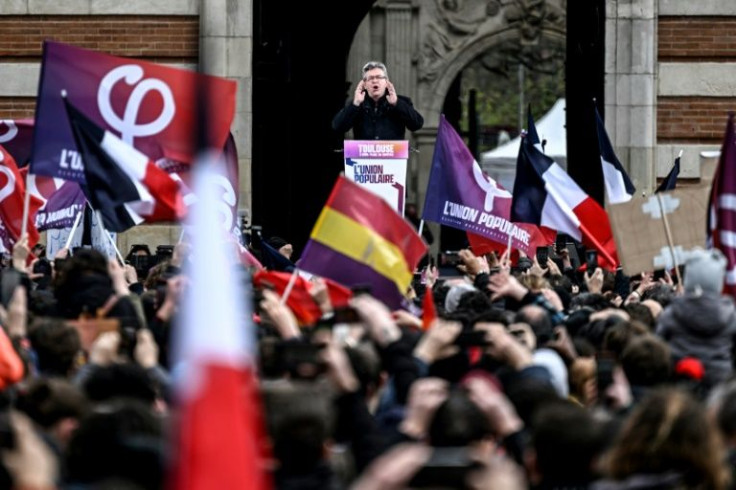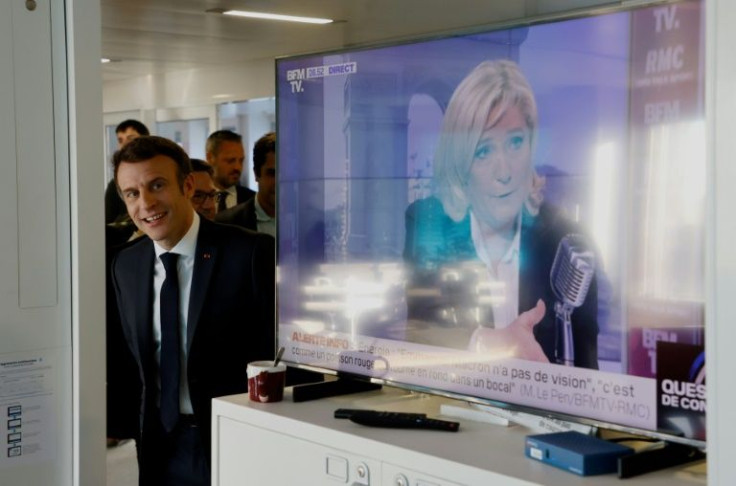France Votes As Tight Le Pen-Macron Duel Looms
France votes Sunday in the first round of presidential elections at which Emmanuel Macron is bidding for a second term in the face of a strengthening challenge from resurgent far-right leader Marine Le Pen.
In an election whose outcome is crucial for the future direction of France and also Europe, the first round will determine which two candidates go through to the run-off on April 24.
Polls project that the final two will be Macron and Le Pen, in a repeat of their duel from 2017 that saw the centrist become France's youngest-ever head of state.

With the traditional Socialist and right-wing parties that dominated French politics for last decades facing near electoral oblivion, far-left politician Jean-Luc Melenchon is projected to come third, though he believes he could still reach the second round.
But while Macron handily trounced Le Pen five years ago, the veteran anti-immigration campaigner has sought to rebrand herself with a softer image and has closed the gap with the president in recent opinion polls.

Macron entered the campaign at the last minute, saying he had been focusing on ending Russia's invasion of Ukraine, while Le Pen has crossed the country seeking to strike a chord with the French on issues of daily concern.
The president addressed his first major campaign event only on Saturday, a rock concert-style rally where he entered like a prize fighter but warned that defeat to Le Pen was possible.

"Look at what happened with Brexit, and so many other elections: what looked improbable actually happened," Macron said, alluding not least to Donald Trump's defeat of Hillary Clinton in the 2016 US elections.
Macron received a poll boost in the immediate aftermath of President Vladimir Putin's decision to invade Ukraine, but in the last weeks Le Pen has been eating away at what once looked an unassailable lead.
A survey published Monday by Harris Interactive showed Macron's second-round lead at its narrowest yet, at 51.5 percent against Le Pen's 48.5 percent.
"What people said was the automatic re-election of Emmanuel Macron turned out to be fake news," Le Pen said on Friday.

"It is perfectly possible to defeat Emmanuel Macron and radically change the politics of this country," she added.
Other polls have credited Macron with a slightly wider margin but still too close for comfort. An Ifop-Fiducial poll, also published Monday, showed Macron at 53 percent against 47 percent for Le Pen.
Marine Le Pen has seen a "strong dynamic at the end of the campaign... The second round promises to be much tighter than 2017" when Macron won with over 66 percent of the vote, said Jean-Daniel Levy, director at Harris Interactive.

The stakes are huge, with Macron vowing further reforms of France if he wins a new term, and set to retain his status as Europe's number one figure after the departure of former German chancellor Angela Merkel.
A Le Pen presidency would likely see a tougher stance from France on immigration and integration, and raise questions over whether Paris can retain its global diplomatic clout in a world shadowed by Russian aggression.
She has sought to detoxify her party from the heritage of its founder and her father Jean-Marie Le Pen, not least by renaming it the National Rally (RN) instead of the National Front (FN), but Macron and his allies insist it has not changed.
"It's not a rally, it's a clan," Macron said in an interview with regional newspapers published on Monday.
While Social Democrat Olaf Scholz has succeeded Merkel, the right has been surging elsewhere in Europe with Hungarian Prime Minister Viktor Orban, Putin's closest ally within the EU, securing a new term in elections at the weekend.
Should he win, Macron would be the first French president since Jacques Chirac in 2002 to win a second term after the presidencies of right-winger Nicolas Sarkozy and Socialist Francois Hollande ended in one-term disappointments.
Polls project Macron winning the first round with a score in the high twenties, followed by Le Pen and then Melenchon.
The far left-leader of the France Unbowed (LFI) party, Melenchon is banking on a late surge fuelled by an unusual meeting late Tuesday where he appeared as a hologram simultaneously in 12 cities across the country from a live rally in the central city of Lille.
"Macron against Le Pen -- it's not going to happen," he insisted Tuesday, saying he could even sneak into the second round at the expense of Macron. "Look at the (poll) curves," he told Sud Radio.
Elsewhere on the left, the Greens and Communist candidates failed to make an impact while Socialist candidate Anne Hidalgo, the mayor of Paris, is projected to struggle to reach even two percent.
Valerie Pecresse, the candidate of the main rightwing party The Republicans, the political home of former presidents including Chirac and Sarkozy, also appears out of contention after a campaign that never found momentum.
Sarkozy, who retains influence on the right despite criminal convictions in graft scandals, has not even bothered to endorse Pecresse, a major setback for the Paris region chief.
Extreme-right pundit Eric Zemmour made a sensational entry into the campaign last year but has gradually lost ground, with analysts saying he has in fact aided Le Pen by making her appear more moderate.
© Copyright AFP 2024. All rights reserved.





















